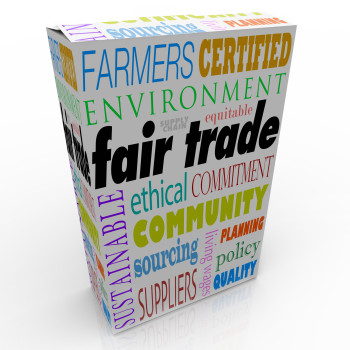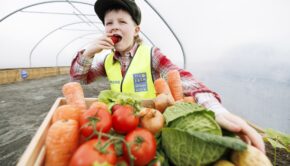The rise of the conscientious consumer

Ireland’s thriving markets scene is being driven by the rise of the conscientious consumer – shoppers who want to buy products that align with their ethical values, according to Business in the Community Ireland’s Tina Roche. Yet to what extent does price play a part in affecting such conscientious decisions, asks Gillian Hamill
15 April 2015
As we head into the summer months, Tina Roche, chief executive of Business in the Community Ireland (BITCI), points out that the craft fairs and food markets increasingly popping up all over the country, are actually a relatively new phenomenon. “We’re so used to them now it’s hard to remember that, just over a decade ago, many didn’t exist,” she says.
The food and farmers’ market sector grew throughout the downturn, to around 150 today, according to Bord Bia’s Guide to Food Markets in Ireland. The most recent figures available, from 2010, estimate sales at the country’s food and farmers market at €27m.
Driving conscientious sales
“At Business in the Community Ireland, we believe one thing has been driving this phenomenon – the rise of the conscientious consumer,” says Roche. “This is the term given to the growing ranks of shoppers who, when purchasing, look to buy items that are in line with their values. Typically these are that the transaction supports the local economy and that the people who produced the item were treated and compensated fairly.”
Roche believes the recession has intensified this trend, creating a deeper appreciation of community and a desire to support locally produced goods. In fact, she points to research that indicates nearly 80% of consumers believe that food produced locally results in higher quality products, and almost as many say they are more confident of the safety of food produced in their local area.
From markets to bricks and mortar
Ciaran Casey, co-owner of the Markets Alive Support Team (MAST) agrees: “Markets here are definitely on the increase and I feel one of the main reasons is that there is a growing number of entrepreneurs who see that market trading is probably the lowest cost means of getting a business up and running, particularly a food business. In the last two years, at least 40 of our members have made the move from market stalls to fixed premises…We’re just getting more and more calls every day saying people are getting contracts to supply SuperValu. SuperValu in fact deserve a round of applause for their part in developing Irish artisan food businesses.”
However while markets here are benefitting from a growing shopper base, Casey believes that price still remains the number one factor for those on low incomes. “There is a certain exclusivity” surrounding many Irish markets, compared to markets “that you find all over the rest of the EU, where you will find people on the dole who are maybe rubbing shoulders with the very well heeled,” he says. “For the lowest income people, price has become paramount. It is because their amount of disposable income is so low, that everything has to be bought for the minimum price and one of the unfortunate things with a lot of people in that income bracket is that their educational qualifications and opportunities are maybe quite limited so their awareness of what is really healthy food is actually quite limited.”
Value and price not the same
By contrast, he says that many Irish markets “generally speaking, have white collar prices” although that does not mean they provide bad value. “Value and price should really not be linked,” he says. “As Oscar Wilde said in his famous quote about Lord Darlington, [he is] the man who knows the price of everything and the value of nothing. In such a consumer-driven society as ours, I feel this is a trap that millions of people are actually sucked into by advertising. They know prices, and that an item is the cheapest, but if you actually look at the overall cost of buying the cheapest thing, [it’s not the best value].”
Yet while price remains the ultimate deciding factor for those without the disposable income to accommodate a broader choice, Roche maintains: “Businesses are responding to the rise of the conscientious consumer. Supermarkets are expanding their ranges to include products such as Fair Trade or Guaranteed Irish.”
Impressive initiatives
She also commends SuperValu on its “comprehensive supplier development programmes to help local artisanal food producers take that crucial step up to commercial production”. Another retailer she applauds is “Marks & Spencer [which] has developed Plan A, a corporate citizenship initiative that commits it to taking an increasingly ethical approach to all its operations. It covers everything from gender diversity at senior management level to ensuring no waste from stores, offices, warehouses or construction is sent to landfill in Ireland and the UK; achieving carbon neutrality for all M&S operated and joint venture retail operations across the world; and surveying thousands of workers in Sri Lanka, India and Bangladesh via their mobile phone to ensure factory conditions are being maintained beyond the annual audit.”
Low consumer awareness
However Roche says ethical initiatives need to be better communicated to consumers. “Our research indicates that over half of Ireland’s consumers are completely unaware of any company that supports the community, or society, in any way,” she says. “What this means is that, despite the growing appetite for information on this topic from consumers, businesses are failing to communicate the good work they are doing. When it comes to giving the public reason to feel good about their buying decisions, corporations need to be every bit as conscientious as consumers.”



 Print
Print




Fans 0
Followers